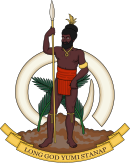
Politics of Kiribati takes place in a framework of a parliamentary representative democratic republic, whereby the Beretitenti, President of Kiribati, is both the head of state and head of government, and of a multi-party system. Executive power is exercised by the government, Beretitenti, and his cabinet, all MPs. Legislative power is exercised by the House of Assembly. The Judiciary of Kiribati is independent of the executive and the legislature. The Constitution of Kiribati, promulgated at independence on 12 July 1979, establishes the Republic of Kiribati as a sovereign democratic republic and guarantees the fundamental rights of its citizens and residents.
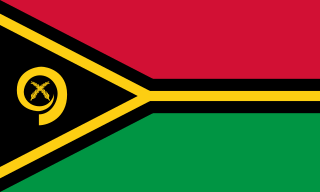
Vanuatu, officially the Republic of Vanuatu, is an island country in Melanesia, located in the South Pacific Ocean. The archipelago, which is of volcanic origin, is 1,750 km (1,090 mi) east of northern Australia, 540 km (340 mi) northeast of New Caledonia, east of New Guinea, southeast of Solomon Islands, and west of Fiji.
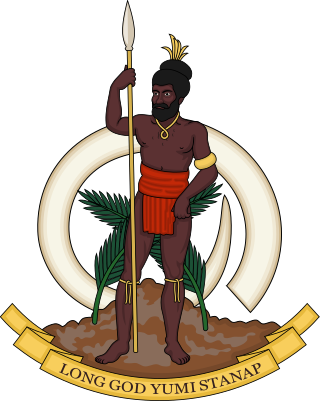
The politics of Vanuatu take place within the framework of a constitutional democracy. The constitution provides for a representative parliamentary system. The head of the Republic is an elected president. The prime minister of Vanuatu is the head of government.

Port Vila, or simply Vila, is the capital and largest city of Vanuatu. It is located on the island of Efate.

The Great Council of Chiefs is a Fijian constitutional body. It previously existed from 1876 to March 2012 and was restored in May 2023.
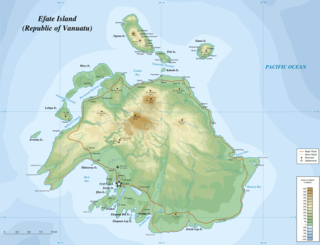
Efate is an island in the Pacific Ocean which is part of the Shefa Province in Vanuatu. It is also known as Île Vate.

Moana Carcasses Kalosil is a Vanuatuan politician. He was Prime Minister of Vanuatu from March 2013 to May 2014. He was the first naturalized citizen of Vanuatu to become the country's prime minister.
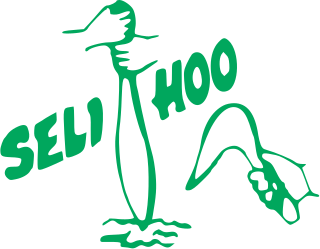
The Vanua'aku Pati is a democratic socialist political party in Vanuatu.
A House of Chiefs is a post-colonial assembly, either legislative or advisory, that is recognised by either a national or regional government as consisting of and providing a collective, public voice for an ethnic group's pre-colonial authorities. Although often influential within the indigenous culture, its members do not usually function as a modern nation's primary law-making body, being neither representative nor consisting of members appointed individually by the government in power, whether democratic or not. It consists of all or some of the "traditional leaders", historically kings and chiefs, of a country or a sub-division thereof.

Mota is an island in the Banks group of northern Vanuatu. Its population – today about 700 people – speak the Mota language, which Christian missionaries of the Anglican Church used as a lingua franca in parts of Melanesia.
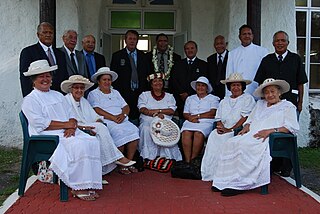
The House of Ariki is a parliamentary body in the Cook Islands. It is composed of Cook Islands high chiefs (ariki), appointed by the King's Representative. While it functions in a similar way to the House of Lords and the Senate of Canada, the country's parliament is officially unicameral. There are up to twenty-four members, representing different islands of the Cooks.
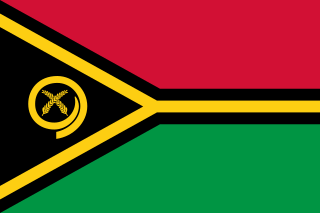
The following outline is provided as an overview of and topical guide to Vanuatu:

Christianity is the largest religion in Vanuatu. Vanuatu is an archipelago made up of 13 larger islands, and approximately 70 smaller surrounding islands, each home to multitudes of diverse cultural and religious communities.

Ralph John Regenvanu is a Ni-Vanuatu anthropologist, artist and politician. He has been a Member of Parliament since September 2008, was a member of Cabinet for most of the period from December 2010 to January 2012 and then from March 2013 to June 2015, and was the Director of the Vanuatu National Cultural Council from 1995 until December 2010.
Chief "Willie Bongmatur" Malto was a Chief of Vanuatu. He served as President of Malvatu Mauri Council of Chiefs from 1977 to 1993.

The Cabinet of Vanuatu is the cabinet of the government of the Republic of Vanuatu.

The Constitution of Vanuatu is the supreme law of the Republic of Vanuatu. It was enacted in 1979, and came into force upon the country's independence on 30 July 1980.

The Vanuatu passport is an international travel document issued to Vanuatu citizens.
Tape, also known as Maragus, is a nearly extinct Southern Oceanic language of Vanuatu. The population of speakers of the Tape language is reduced to approximately 15 speakers who are among the older generations. The language is part of the Oceanic subgroup of the Austronesian language family.
